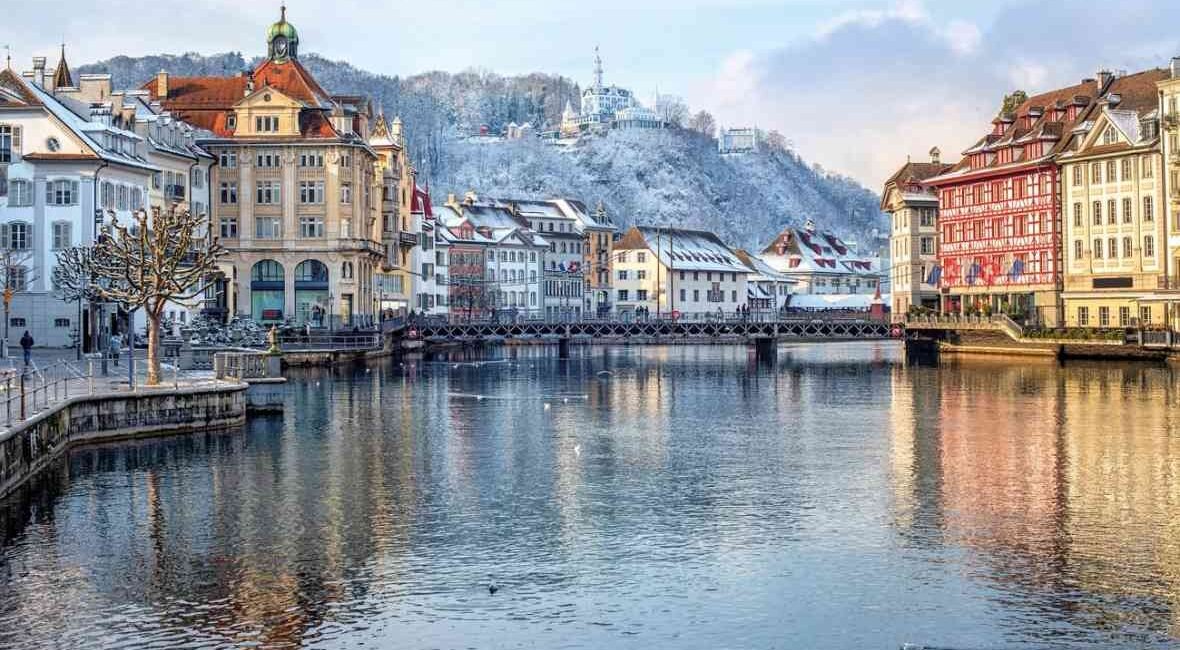
When people dream about moving to Switzerland, they often imagine snow-capped mountains, luxurious chocolates, and calm blue lakes. But living in Switzerland is far more fascinating — it’s a country where four national languages coexist, traditions blend seamlessly, and every corner tells a unique cultural story.
In this article, we’ll explore what life in Switzerland is truly like — from daily living and housing to communication and lifestyle — and how understanding its linguistic and cultural diversity can help anyone adapt to Swiss life more easily.
1. A Country of Four Languages and Infinite Charm
Switzerland is unlike any other European country when it comes to languages. It officially recognizes German, French, Italian, and Romansh as national languages. Each region, known as a canton, has its own dominant language — creating a mosaic of cultural harmony.
For newcomers or travelers curious about the linguistic side of the country, knowing most spoken language in Switzerland can make a world of difference. It’s not just about communication; it’s about connection. Whether you’re ordering coffee in Zurich or taking a train to Geneva, the language shapes how people live and interact.
2. Everyday Life and Social Balance
One of the reasons Switzerland ranks among the top countries in quality of life is its balance — between work and leisure, nature and city life, modernity and tradition.
A typical day for a Swiss resident might start with a quick bicycle ride to the office, a coffee break with colleagues, and a weekend trip to the mountains. The Swiss value punctuality, cleanliness, and privacy, but they also deeply appreciate community life and respect for diversity.
Local festivals, language-based cultural events, and community gatherings make it easy for residents and expats to feel included. Even in small villages, one can find a mix of languages and traditions peacefully coexisting.
3. Housing and Living Costs: What to Expect
Living in Switzerland can be expensive — particularly in major cities like Zurich, Geneva, and Lausanne. Rent, insurance, and groceries are higher than the European average, but the high salaries and excellent public services balance it out.
If you’re planning to settle here, research local housing platforms carefully. Many listings mention the language of communication — for example, some Zurich apartments prefer German-speaking tenants, while those in Geneva might require French.
The key is adaptability. Learning a few local phrases can make landlords, neighbors, and even shopkeepers more welcoming.
4. The Swiss Way of Communication
Communication in Switzerland is polite, structured, and often reserved. People tend to be direct but respectful, and tone matters more than volume.
Interestingly, your experience will change depending on where you are:
German-speaking regions (like Zurich and Basel): Communication tends to be efficient and business-like.
French-speaking areas (like Geneva and Lausanne): More expressive, with an emphasis on elegance and charm.
Italian-speaking canton (Ticino): Warm and open, often filled with friendly gestures.
Understanding these differences doesn’t just make daily life smoother — it also reflects how beautifully Switzerland integrates diversity into its identity.
5. Sustainable Living: The Swiss Lifestyle Choice
Switzerland is globally admired for its sustainability practices. From recycling programs to public transport efficiency, everything reflects the Swiss respect for nature.
Locals prefer trains over cars, reusable bags over plastic, and eco-friendly energy sources. Living in Switzerland naturally encourages a greener, more conscious lifestyle — something the world can learn from.
If you’re curious about embracing this eco-conscious mindset, check out Swiss Sustain — a platform dedicated to sustainable living, eco-travel, and local insights that make life in Switzerland not only enjoyable but also environmentally responsible.
6. Cultural Etiquette: Blending In Gracefully
Adapting to Swiss culture takes time, but it’s deeply rewarding. Here are some essential cultural etiquettes to remember:
Greet properly: A firm handshake or a polite “Grüezi” (in German regions) goes a long way.
Respect quiet hours: Most buildings observe “Ruhezeit” (quiet time) after 10 PM.
Be punctual: Arriving even five minutes late is considered impolite.
Value privacy: Swiss people are friendly but private; they appreciate respectful boundaries.
These small gestures make a huge difference when integrating into Swiss communities, especially when language barriers exist.
7. Traveling Across Languages
Switzerland may be small, but its linguistic diversity makes travel feel like crossing different countries within hours.
A journey from Zurich to Geneva shifts you from German to French, while a trip to Lugano immerses you in Italian charm. Even the architecture, food, and mannerisms subtly change.
For tourists or expats, this means endless opportunities to explore and learn — not just landscapes, but lifestyles.
8. Finding Belonging Beyond Borders
Whether you move to Switzerland for work, education, or love of the mountains, one thing becomes clear: belonging here is not about speaking a single language but embracing many voices.
Learning a bit of each language — or at least understanding where they’re spoken — opens doors to friendships, opportunities, and genuine cultural understanding.
That’s why knowing what language is spoken in Switzerland is more than just trivia — it’s the first step toward feeling at home.
Conclusion: A Multilingual Symphony Worth Experiencing
Switzerland teaches the world a rare lesson — that diversity can thrive in harmony. Its four national languages represent not division but unity, creating a country where everyone, from locals to newcomers, finds a voice.
Living here is an experience of respect, beauty, and balance — where every mountain, every street, and every language tells part of the same story.
So, whether you’re planning to visit or move permanently, remember: Switzerland is not just a destination — it’s a conversation between cultures, waiting for you to join in.

